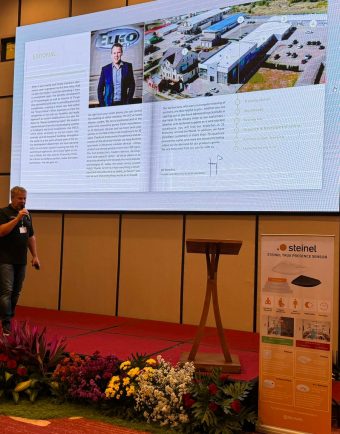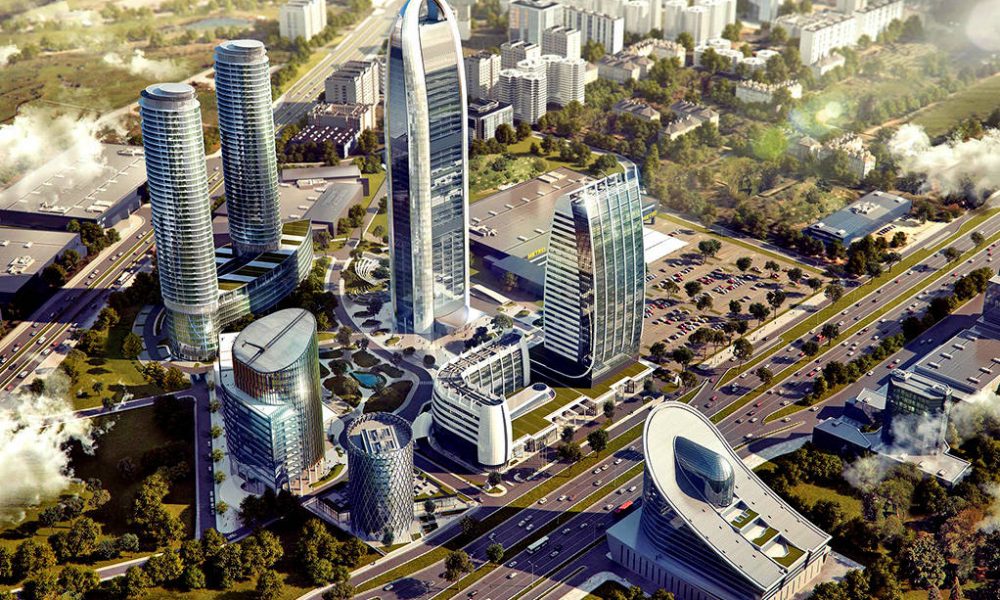

Přejít k obsahu | Přejít k hlavnímu menu | Přejít k vyhledávání

Our national sport is underestimated. We still live with the feeling that we have “golden Czech hands” and “golden Czech heads”, which are unequalled in the world. Many countries tend to think they are miles behind us. That is, until we arrive and they find that they can put us in their pockets in many ways. On the Different Now server, we imagined India in this way, we looked at Bhutan – where gross domestic product is measured in happiness, and we did well in the countries of the Middle East, which are light years ahead of us in the field of smart technologies. Now it’s time to imagine us in Bulgaria, the much underrated Bulgaria. We talked about it with Jiří Konečný, the owner of ELKO EP, which has branches in 13 countries around the world, and exports its smart solutions to another 70 countries. This is a man who has recently won the Visionary of the Year or Global Exporter of the Year awards. A person who spends a substantial part of the year on the road.
What mistakes do the Czechs make when looking at Bulgaria??
In general, we Czechs often lack personal experience. We have some ideas from the times when we went to the sea under socialism. We do not realize that we were there when the train rattled. Today’s Bulgaria, however, has good roads, a functioning infrastructure and very good services. At the same time, they can be incredibly agile and flexible in business. What takes us months, they can do in a few days. What we’d rather not do, they’ll fly headlong into it and the country benefits greatly from that.
Can you give a specific example?
We were approached by a group of people saying that they would like to sell and implement our technologies on the Bulgarian market. Smart wiring for homes, offices and hotels under the iNELS banner. I thought why not, when it comes to activity from the market itself, it’s often easier than looking for partners. But what this group of a few people has accomplished is just making me shake my head. They really started doing business in a big way. They go around trade fairs, sell, and create their own marketing platform. They make a video, send it to their friends and start getting real orders. They often only need Facebook or WhatsApp, no sophisticated online strategies. In our country, people might watch a similar video, but would that really translate into orders in the store here?
Is it not just a greater hunger for technology as such?
Here we are again. Your question already indirectly suggests that technologies in Bulgaria cannot be as advanced as in our country. But Bulgaria is not the Far East, but a country of the European Union. Today, young Bulgarians live with the same technologies as young Czechs, Germans or British. They have smartphones, they have a good education, and they speak English very well. Perhaps they are not yet as comfortable in many ways as young people in countries to west of them because they haven’t grow up enough, but they know they have to sacrifice something for success in their life. Energy, time, effort, ideas. We underestimate this aspect.
So how are iNELS products doing in Bulgaria?
The activity is fairly new; so far we do not have 100% data. However, at first glance, the growth curve is much steeper at the beginning than elsewhere. But I’m especially excited about the enthusiasm of the team itself. They just go, invent, and bomb us questions, they go around exhibitions and fairs. They want to grow up and according to the first results they are also growing up very fast.
In which countries are you doing best?
In general – we are extremely strong in the Middle East. There is an incredible construction boom. Qatar, India, Saudi Arabia, Emirates. They are building dynamically everywhere, people love and support new technologies and want to be part of their projects. This is partly because technology is their life, but partly because of climatic or social conditions. After all, when it is somewhere 50 degrees in the shade, you deal more with air conditioning in the home. Or if you’re in a city like New Delhi, where half a million people move every year and many of them live there, then smart technology and the development of a smart city concept are actually the only chance to survive in the future. If you don’t, the further development of the city is actually deadly. We all know the stories well.
Is it possible to come up with an example for Bulgaria?
No, it is simply a European country trying to catch up with its shortcomings as quickly as possible. It has relied on education and technology, which is a basic prerequisite for doing so. Today Bulgaria is beginning to reap the fruits of this orientation. It is operational. I am a proud Czech and I know that we have smart heads and good people, but the ability to take action, the willingness to take risks and not just from my stereotypes, is dam simply missing. In general, we Czechs often lack personal experience. We have some ideas from the times when we went to the sea under socialism. We do not realize that we were there when the train rattled. Today’s Bulgaria, however, has good roads, a functioning infrastructure and very good services. At the same time, they can be incredibly agile and flexible in business. What takes us months, they can do in a few days. What we’d rather not do, they’ll fly headlong into it and the country benefits greatly from that.